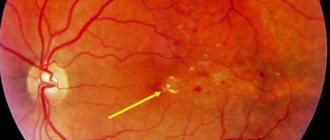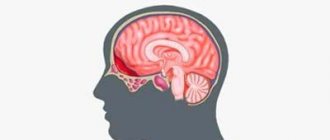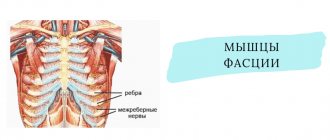People over 60 years of age often experience mental disorders with confusion, with symptoms reminiscent of schizophrenia and bipolar disorder. They are often accompanied by delusions, hallucinations, and paranoid manifestations without dementia. In this case, doctors suspect senile psychosis in elderly people. In psychiatry it has a synonym - senile. Relatives of this category of patients have a question: what to do in this case. We recommend contacting the Moscow clinic “Leto”. Our specialists treat mental disorders, including acute/chronic psychotic disorders. Phone number of our medical center: 8(969)060-93-93 . You can call him at any time and get a free consultation.
Senile psychosis, features and causes
The frequency of senile psychotic disorders is in the range of 12-25% of all mental illnesses in old age. The exact causative factors of the disease have not yet been established.
Psychiatrists suggest that the disease develops as a result of age-related changes, character traits and the influence of unfavorable living conditions.
More often, psychosis in an elderly person is characterized by:
- Women.
- Depressed individuals.
- Patients with a hereditary predisposition to this pathology.
- Persons with long-term chronic somatic diseases.
Causes
The etiology of senile psychosis is not fully understood. Most experts are inclined to believe that the development of pathology is based on several factors:
- hypoxia of brain neurons due to deterioration of blood circulation and nutritional deficiency;
- pathologies of the central nervous, endocrine and cardiovascular systems associated with the aging process;
- hereditary predisposition (by analogy with the etiology of affective mental disorders);
- the influence of external factors (susceptibility to them increases many times over with age): transition to retirement, deterioration in social and financial status, changes in the usual daily routine, loneliness, etc.
Senile psychosis, types
Doctors at our clinic use the generally accepted classification of the disease.
It includes:
- Affective reactions.
- Paraphrenia.
- States of confusion.
- Mental disorders in severe internal diseases.
Each variant has a dominant syndrome, according to which their differentiation is made.
How does psychosis manifest in the elderly?
Senile psychotic disorders identified by specialists at our health center are divided into several types. They can occur in isolation, with periodic attenuation and new exacerbations. Sometimes one set of symptoms is reduced to another. There are also isolated mental disorders that go into stable remission, which is an indicator of their effective cure. Let's consider the main symptom complexes.
Acute forms of senile psychoses
These are the problems our psychiatrists most often have to deal with.
Their development is caused by somatic ailments:
- Cardiovascular and respiratory failure.
- Hypovitaminosis.
- Diseases of the kidneys and liver.
Patients exhibit characteristic disorders:
Partial or complete disorientation in space and time with confusion.- Motor restlessness.
- Anxiety.
- Transient hallucinatory visions.
- Crazy statements.
The duration of symptoms is several days, less often weeks. After the end of the attack, prolonged asthenia and mild lethargy remain. The episode may be repeated.
Chronic senile depression
The severity of clinical manifestations of this form depends on the age of the patients (usually women).
The psychotic reaction consists of:
- Apato-adynamic complex.
- “Silent” depression, in which few people pay attention to the emerging symptoms. And this kind of patient is prone to suicide, which is a complete surprise to others.
- Hypochondriacal complaints with ideas of self-accusation, up to Cotard's delirium.
This senile psychosis lasts a long time - 10 or more years. Thanks to successful therapy in our clinic, it is possible to significantly mitigate its course. Intellect in this form practically does not suffer, only memory problems appear over time.
Chronic paranoid psychoses
The main manifestation of the disorder is the patient’s delusional ideas, with fear of harm from loved ones.
They believe that relatives or neighbors want:
- Bring their death closer.
- Poison.
- Kick out of the home.
- Rob.
Patients turn to various authorities for “protection”, initiate checks, etc. This kind of client retains complete social adaptation, and their nonsense is perceived by department officials as the truth until the circumstances are fully clarified.
Hallucinosis
Characteristic of old age (after 80 years).
Manifest:
- Vivid visual, tactile and auditory hallucinations.
- Severe memory impairment.
- Dermatous delirium. A person is sure that he has parasites and foreign objects on his skin that he cannot get rid of. The patient itches, brushes off non-existent objects, consults dermatologists, and constantly washes clothes and bed linen.
Hallucinatory-paranoid form
This option is characterized by:
- Delirium of damage.
- By adding hallucinations of fantastic content.
- Echo thoughts with hearing voices (schizophrenia-like course).
- False ideas.
This type of disease occurs continuously with slow progression, leading to gradual memory loss.
Senile paraphrenia
Psychotic disorder is manifested by false memories with fantasizing. Patients talk about incredible events, meetings, acquaintances that had no place in their lives. Patients often develop euphoria and delusions of grandeur. The painful episode lasts 3-4 years, then begins to gradually fade.
Clinical picture of involutional depressions
At the initial stage of the disease, complaints predominate about:
- weakness, lethargy;
- discomfort and unpleasant sensations throughout the body;
- excessive irritability, grumpiness, dissatisfaction with others and what is happening around;
- anxiety that increases as the disorder progresses.
The patient constantly worries about the health of his loved ones, he is tormented by anxious, frightening premonitions that something might happen to his children, grandchildren, and friends. This is accompanied by motor restlessness and insomnia. Gradually, depressive delirium with ideas of one’s own guilt and condemnation “joins” the symptoms.
Important!
With senile psychosis, a much greater tendency to suicide is noted. According to statistics, the number of attempted and completed suicides in old age is much higher than in young people.
A person remembers and exaggerates all previously committed offenses, he is tormented by a monstrous feeling of guilt before loved ones and society as a whole. He is waiting for retribution for his own “sins”, looking everywhere for signs of impending misfortune, which leads to an almost constant feeling of despair and fear. Delusional ideas related to one’s body often appear - the patient is convinced that all his internal organs and bones are affected. In some cases, there is confidence that he is immortal and will live forever. Sometimes the existence of soul and body is completely denied; religious people are characterized by the development of the conviction that there is neither God nor the devil. At the same time, the delirium of immortality is often associated with eternal, never-ending torment, which can lead to attempts to commit suicide.
Senile psychosis, which occurs in the form of involutional depression, is also characterized by psychomotor agitation. The patient is restless and fussy.
Among the external signs, a rapid acceleration of the aging process is noted. Deep wrinkles quickly appear, gray hair appears, and a person loses weight even with a good appetite.
Diagnostics
At the appointment, the doctor at our clinic draws attention to characteristic symptoms that indicate the client has senile psychosis.
During examination and questioning of patients, the following is revealed:
- Preservation of intelligence.
- Stability and limited symptoms.
- Duration of deviations.
It is very important for a psychiatrist to distinguish senile psychosis from schizophrenia, manifestations of vascular pathology. For differential diagnosis, CT and MRI of the brain are used, which can reveal anatomical vascular defects and changes in brain tissue characteristic of other diseases.
Nature of acute psychotic disorder
Acute psychosis is a mental disorder, the main manifestations of which are disturbances in the perception of the surrounding world and depersonalization, that is, an incorrect perception of one’s personality. In this condition, the patient loses control over his thoughts, emotions and behavior.
All psychoses, according to their origin, are divided into exogenous and endogenous forms.
- Endogenous psychoses arise as a consequence of exacerbation of other mental illnesses. Very often this leads to schizophrenia, as well as schizoaffective disorders.
- Exogenous psychoses are provoked by external factors. These can be any traumatic situations: loss of a loved one, violence, racial discrimination, isolation from society. It has been established that poverty is one of the most powerful provocateurs of psychosis. It is a known fact that people who have suffered various forms of violence in childhood, especially sexual violence, loss of loved ones and lack of attention from those raising them in adulthood are susceptible to developing a psychotic disorder.
Another reason for such a violation is various diseases .
Brain injuries and lesions . Syphilis is one of the many diseases that destroys brain cells in the later stages. As a result, the personality degrades so much that I characterize its behavior as the dirty old man syndrome.
Intoxication . Many chemical compounds, when in contact with them, cause agitation and inadequate mental functioning. These include mercury and lead. The latter is found everywhere: dilapidated buildings, drinking fountains with lead lining, pipes, dishes, automobile gases. It tastes sweetish, which can attract children. Those of them who have undergone such intoxication become excitable and lag behind their peers in development.
Other harmful compounds are also known. Thus, two brothers living in Nevada acquired carbon disulfide. They needed the substance to bait gophers. Interaction with this drug caused a psychotic disorder in both brothers. As a result, one of them shot a man. Another fell into depression, his consciousness darkened. This ultimately led to suicide. The story dates back to 1989.
Another group of toxic compounds are psychoactive substances: alcohol, drugs, some medications. They actively influence a person’s mental state, causing pathological changes and inadequate reactions.
Dementia or senile dementia . This is an age-related process, expressed in disruption of the structure of blood vessels and the entire blood circulation in general. Impaired blood circulation in the brain leads to persistent destructive transformations of the personality that are irreversible.
Other provoking diseases include:
- oncological processes;
- epilepsy;
- infections: tuberculosis, influenza, tularemia, malaria, AIDS, etc.;
- atherosclerosis;
- deficiency or excess of certain vitamins and minerals;
- hormonal disorders;
- kidney and liver diseases.
How to get to our medical center
All you have to do is call 8(969)060-93-93 . The call center manager will provide all the necessary information. From him you will learn the methods and cost of the upcoming treatment. The consultant will help you choose a room. After making an appointment, all you have to do is drive to the clinic. Our hospital is located in a convenient location. Getting to it will not be difficult, either by public transport or by your own. In cases where there are problems with the client, you can order a transfer service from us. Our staff will deliver the patient using convenient transport. All types of diagnostics and therapy are provided anonymously.
Paranoid
This type of senile psychosis differs from late-life depression in the content of delusions. As a rule, its plot becomes everyday life situations and relationships with loved ones. Obsessive ideas of damage, persecution, and jealousy arise. The patient is convinced that someone is constantly damaging his property and stealing things. The person claims that in his absence, thieves enter the home through windows or doors and take out furniture, household appliances, etc. They often suspect their neighbors or relatives of trying to take possession of their apartment/house, money, or jewelry.
In some cases, this delusion is “joined” by hypochondriacal ideas - a person is constantly looking for symptoms of serious illnesses, and is confident of his own imminent death from a serious incurable illness.
Delusional thoughts are monotonous and detailed. The patient describes in great detail how strangers enter the home, how they observe him, what exactly disappeared (for example, he talks in detail about the missing thing, which in fact he never had). This type of senile psychosis develops slowly, and working capacity can be maintained for a long time.
Cost of services
| CONSULTATIONS OF SPECIALISTS | |
| Initial consultation with a psychiatrist (60 min.) | 6,000 rub. |
| Repeated consultation | 5,000 rub. |
| Consultation with a psychiatrist-narcologist (60 min.) | 5,000 rub. |
| Consultation with a psychologist | 3,500 rub. |
| Consultation with Gromova E.V. (50 minutes) | 12,000 rub. |
| PSYCHOTHERAPY | |
| Psychotherapy (session) | 7,000 rub. |
| Psychotherapy (5 sessions) | 30,000 rub. |
| Psychotherapy (10 sessions) | 60,000 rub. |
| Group psychotherapy (3-7 people) | 3,500 rub. |
| Psychotherapy session with E.V. Gromova (50 minutes) | 12,000 rub. |
| TREATMENT IN A HOSPITAL | |
| Ward for 4 persons | 10,000 rub./day |
| Ward for 3 persons | 13,000 rub./day |
| Ward 1 bed VIP | 23,000 rub./day |
| Individual post | 5,000 rub. |
| PETE | 15,000 rub./day |
This list does not contain all prices for services provided by our clinic. The full price list can be found on the “Prices” , or by calling: 8(969)060-93-93. Initial consultation is FREE!
Treatment of senile psychosis
To relieve the manifestations of psychotic disorders, mandatory medication correction is required. Medicines are selected after examination on an individual basis. The doctor must take into account the characteristics of the patient, age, character, temperament and other aspects of the personality.
Drug therapy is based on:
Neuroleptics that eliminate delusions and hallucinations.- Antidepressants that relieve depression and anxiety.
- Sedatives that relieve the patient of fears, agitation, and sleep disturbances.
The treatment complex necessarily includes the following:
- Nootropics.
- Vitamins.
- Drugs for the treatment of somatic pathology.
Against the background of pharmacotherapy, psychologists work with clients, correcting their behavior. Each of our patients is cared for and monitored. Medical staff quickly and effectively provide relief to the sick.
Hallucinosis
Perceptual deceptions (simple auditory, olfactory, tactile, thermal, less often visual hallucinations) are episodic in nature. Sometimes they are accompanied by discomfort in the chest area, tingling or itching of the skin, headache, and dizziness.
- Auditory hallucinosis. Typical for patients over 70 years of age. A person can hear individual sounds, musical notes, noise, ringing. But with the exception of short periods of exacerbation, the patient is critical of his illusions.
- Visual hallucinosis. It develops acutely, at first the visions are quite simple, but as the disease progresses they acquire a more severe, “stage” character. The patient can either be a simple spectator of his own hallucinations, or react to them in some way. If the influx of visual images is too strong, the connection with reality is lost, and he is overcome by severe fear and anxiety.
- Olfactory and tactile hallucinosis. They usually occur simultaneously, mainly in people over 65–70 years of age. Patients complain of itching, burning sensations, tingling, which spreads throughout the body and mucous membranes. Sometimes it seems to them that some objects, insects, or parasites have gotten under their skin. This condition is often accompanied by attempts to get rid of the supposed “source” of discomfort: they use disinfecting solutions, consult a dermatologist, or, even worse, self-medicate using far from safe folk remedies, etc.
Forecast and preventive measures
A stay in the hospital of our center with timely assistance provided gives reason to talk about a positive prognosis after treatment of acute conditions. Chronic psychotic forms, unfortunately, have an unfavorable course; doctors can only achieve temporary remission. After discharge, clients, under the supervision of relatives, should follow the recommended regimen, avoid neuropsychic overload, and treat existing pathologies of internal organs. When the first signs of exacerbation appear, simply dial 8(969)060-93-93.
Why does delirium develop in an elderly person?
Involutional processes caused by age most strongly affect brain functions. In connection with these changes, the activity of the central nervous system follows the path of simplification, reverse development, only with pronounced dynamics. The first signs of involution are observed in almost any person who has crossed the forty-five-year mark. And after 60, mental regression manifests itself with obvious signs, expressed to varying degrees.
If you pay attention to emerging deviations in a timely manner, they can be significantly stopped. Therefore, any person who has lived to old age must take independent steps to prevent the appearance of senile ailments. Timely provision of advisory assistance and implementation of medical recommendations will help maintain mental adequacy longer and avoid the development of pathology accompanied by delusional states.











